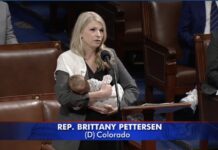
(GA Recorder) — About two-thirds of Georgians who participated in a new survey said they had trouble paying for health care in the last year and that affordability concerns factored into their health care decisions.
A consumer health survey from Altarum’s Healthcare Value Hub and Georgians for a Healthy Future found people who said the cost of care was causing them to delay trips to the doctor, skip pills to stretch out the supply of medication or go without insurance coverage altogether because of the cost of premiums.
The survey included nearly 1,000 people who were reached in late spring when people had been living with the COVID-19 pandemic for about a year in Georgia, which as a state has one of the highest uninsured rates in the country. About 56% said they worried about being able to afford treatment if they contracted the coronavirus.
MORE: FDA panel recommends booster shot of Moderna’s COVID-19 vaccine
Even higher-earning Georgians making more than $100,000 reported affordability burdens, and although financial worries spanned the state, those living across southwest Georgia and an eastern swath of the state reported heightened concerns.
And nearly 80% of all respondents said they worry about being able to afford health care in the future.
Laura Colbert, executive director of consumer advocacy group Georgians for a Healthy Future, said the results point to gaps in the state’s health care system that state leaders can help plug when they head back to Atlanta for the new legislative session in January.
“These gaps really make it so that Georgians can’t afford needed health care. If they receive health care, they’re left with medical debt, or they have to make really tough choices about their health versus other necessities,” Colbert said.
Half of those surveyed reported seeking care but said they struggled to pay the medical bills that arrived later.
“People who don’t think a lot about this and aren’t in the weeds think, ‘Oh, you get medical debt when get hit by a bus all of a sudden and you have this big bill,’” said Allison Sesso, executive director of RIP Medical Debt, who participated in a virtual discussion about the survey Thursday. “The reality is a lot of medical debt is routine care. It is you have diabetes and you can’t afford to have diabetes in the United States.
“I think we have to also think about this as an economic system being broken, not just the healthcare finance system being broken,” Sesso added. “People are making choices about what they can pay for and frankly, a lot of people I think, appropriately, are deciding to pay their rent or buy food and they are not paying the hospital. And so that’s where you get medical debt, and then you have to deal with that later.”
The survey found widespread – and bipartisan – support for policy changes, said Amanda Hunt, director of Altarum’s Healthcare Value Hub.
The vast majority said they believed government should make it easier for people to switch insurers if a health plan drops their doctor, for example. There was strong support for measures that increase price transparency, such as requiring providers and insurers to give consumers up-front cost estimates.
About 81% of those surveyed said the government should expand health insurance options so everyone can afford quality coverage. Hunt said the question posed to participants was intentionally vague and did not specify a specific way of increasing coverage, such as expanding Medicaid under the Affordable Care Act.
Expanding the insurance program to include low-income adults without children has been rejected by GOP leaders in Georgia and 11 other states. In Georgia, about a half-million people could gain coverage if state officials fully expanded Medicaid.
But it remains controversial, with Democrats adding new federal sweeteners this year that have so far gone ignored by GOP state officials. There is a push underway now to include a work-around expansion plan in the Democrats’ sweeping reconciliation package, but proponents are up against competing health care priorities.
“Messaging research has shown that people may fundamentally agree on a lot of issues, and in this case, expanding insurance coverage. But those issues become more controversial when we start talking about particular solutions,” Hunt said Thursday.
“The survey results themselves don’t tell policymakers how people want them to fix the issue. But they definitely show that the majority of state residents, no matter what party that they identify with, support this work at its core,” she said.
Health care was the top issue respondents said they want government officials to focus on in the coming year, followed by the economy/joblessness and then immigration.







